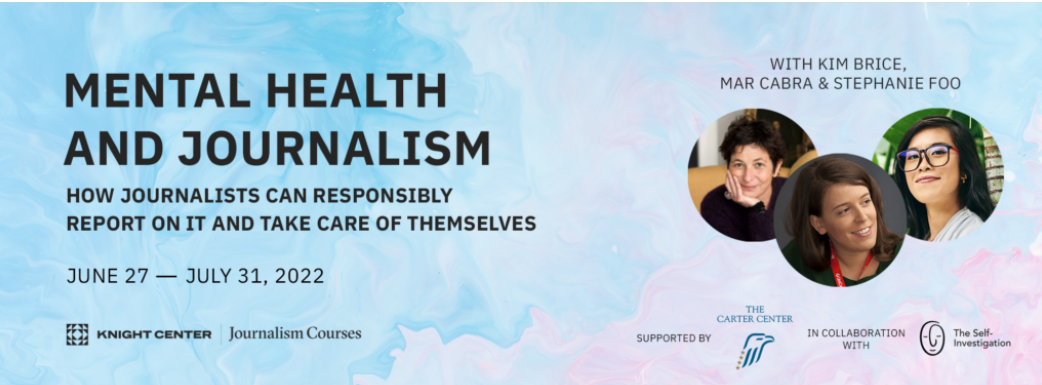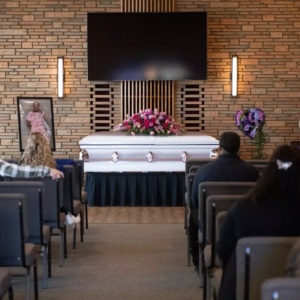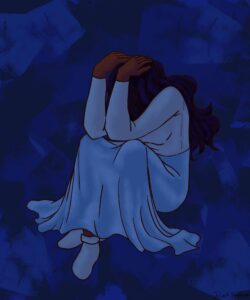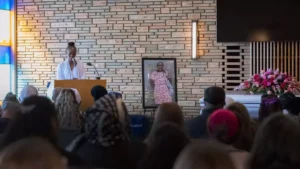
Rosalynn Carter Journalism Fellowship Program offers free online course on responsible mental health reporting and journalists’ self-care
By Susan Whisnant
Since its inception in 1996, the Rosalynn Carter Fellowship for Mental Health Journalism program has been training a select group of reporters each year in Atlanta (or virtually during the pandemic) on how to report accurately and sensitively on mental health topics.
Now, journalists taking care of their own mental health has become an increasingly important focus.
“The pandemic has had an alarming impact on society’s mental health globally. And as journalists we’ve not been spared,” said Mar Cabra, who won a Pulitzer Prize for her work on the Panama Papers and then experienced burnout as a result. She’s now turned her attention toward making those in her profession healthier. She is one of the three instructors of a new massive online open course (MOOC) supported by The Carter Center Mental Health Program.
“Mental health and journalism: How journalists can responsibly report on it and take care of themselves” is a five-week, five-module asynchronous course beginning June 27. It was developed in cooperation with the Knight Center for Journalism in the Americas at the University of Texas at Austin. The format of the MOOC allows this content to be shared with a much broader audience.
The course is free. (For $30 participants who complete the training can receive certificates.) The Knight Center’s MOOCs typically attract between 2,000 and 6,000 participants and are taught by some of the most respected journalists in the world. Cabra is joined by Kim Brice, co-founder of The Self-Investigation, and Stephanie Foo, Rosalynn Carter Fellow (2019-2020). Foo is a radio producer and author of “What My Bones Know,” her memoir that weaves science and her experiences of Complex PTSD.
“We will teach you about the importance of responsible, ethical reporting that brings hope for healing instead of reinforcing stigma,” said Stephanie Foo.
Training modules include facts about stress and mental health, including basic self-care skills and burnout prevention, and how to tell stories that build empathy, not pathology. Working and collaborating in a healthier way in the digital world, including looking at vicarious trauma and online harassment, and how to care for your subjects using best interview practices and caring for your subject’s mental health are also included.
Brice, Cabra, and Foo will be joined by guest speakers, including Hannah Storm and John Crowley, the co-directors of Headlines Network, Sisi Wei, co-executive director at OpenNews, and Carter Center Fellow Alia Dastagir (2019-2020), reporter for USA Today.
Kim Brice added, “This five-week course will provide you with the facts and evidence-based tools and practices that will empower you to sustain your mental health in journalism’s ‘always-on’ culture.”
Find additional information here.
Susan Whisnant is a program associate with The Carter Center Mental Health Program.



